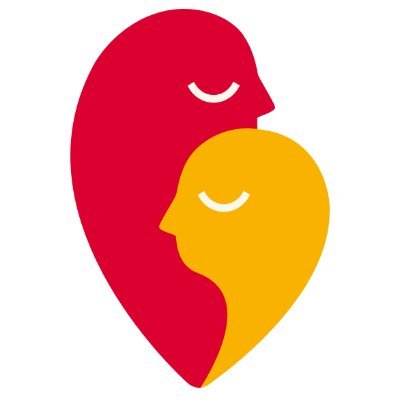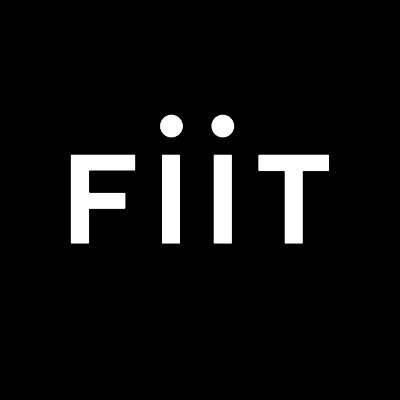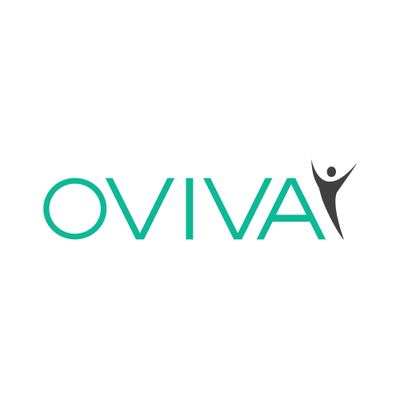6 wellbeing startups to watch during COVID-19
Category: Uncategorized
COVID-19 has sent shockwaves throughout the world and is taking an unprecedented toll on our daily lives, especially as many of us are confined to work and exercise from home. Yet some UK startups are challenging norms, kicking down barriers and forging the future of the wellness landscape. In this piece, we shine a light on how these startups are nurturing mental health, improving fitness and ensuring healthier diets, and explore how they’ll play an ever-growing part in our daily lives.
Mental Health

Biobeats
Amount raised: £5.64m
With two in five workers experiencing poor mental health due to work-related issues, BioBeats is on a mission to encourage employers to put employee health at the forefront of their minds. The idea for the startup came from David Plans, who experienced a heart attack triggered by extreme stress and exhaustion. Coming from a background in AI, he began to build algorithms that could have predicted and prevented that event. Eventually this led to the creation of BioBeats in 2013, co-founded with Davide Morelli and Nadeem Kassam.
BioBeats has created its own software, app and wearable technology that can track biometric and psychometric data. Users receive a personalised wellbeing score, along with insights into their activity levels, mood, heart rate variability and sleep patterns. They’re then delivered personalised digital-therapeutics, coaching programmes and resources designed to improve mental wellbeing. This is correlated to how the user’s body is doing along with how the mind perceives stress. All data an employer can access is aggregated and anonymised, but they can use this information to flag up trends and deploy programs tailored to their workforce.
The company has worked with businesses such as JP Morgan and KPMG, and in 2019 it partnered with WPP Health Practice, which implemented Biobeats AI technology in their offices in London, Milan and Sydney. To date, BioBeats has secured a total of £5.64m in fundraisings. Investors include AXA Venture Partners, IQ Capital Fund, White Cloud, Future Positive Capital, Oxford Sciences Innovation and Hollywood actor Will Smith.
To help people through this time of crisis, BioBeats has waived its monthly subscription fee for 3 months. It also launched a weekly YouTube livestream to discuss the business implications of COVID-19 and to provide advice on supporting employees’ mental wellbeing whilst working from home.

Healios
Amount raised: £2.52m
Healios is a market leader in connecting patients and providers through the smart use of mobile technology. Healios is commissioned by NHS CCGs, Mental Health Trusts and local authorities across the UK, and can also be accessed privately. In 2019, Healios Founder, Chairman and CEO, Richard Andrews, was even appointed to the board of the NHS Confederation Mental Health Network. Thus far the company has raised £2.52m in fundraisings, backed by Albion Capital and Spice Capital amongst others.
Healios’ aim is to reduce long waiting lists for mental health, with digital assessments, treatment and wellbeing monitoring. Users are matched with a clinician and receive personalised care and tailored therapy services. There is even an option for family and friends to dial into clinician sessions via video link, if desired. All of this care can be monitored in the secure Helios app and even through smart wearable technology, designed to help track progress and further improve clinical intervention.
The company has also launched a service specifically targeted at 10 – 18 year olds, known as ThinkNinja. As a direct response to the COVID-19 crisis Healios’ has updated ThinkNinja with specific COVID-19 content to bring self-help knowledge and skills to those experiencing increased anxiety and stress during the crisis.
Fitness

Fiit
Amount raised: £9.62m
One app leading the way is Fiit, which offers a web-based platform to connect users to professional trainers. Founded in 2017 by former Google employees Daniel Shellard and Ian McCaig, along with sales expert and serial entrepreneur Sammi Adhami, it offers hundreds of classes with in-demand fitness trainers. From HIIT to yoga, there are hundreds of classes, live leaderboard workouts and training plans. You can connect the platform to a fitness tracker (including the Fiit device, Apple Watch and Garmin) to see your stats as you work out, and track your progress over time.
Fiit has raised almost £10m in fundraising to date, with a £2.4m equity round in November 2017 followed by a £7.2m round in March 2019. Leading investors include Connect Ventures, Exxor Seeds, JamJar Investments, Rooks Nest Ventures, and Westminster Capital.
The company’s main USP is to bring the gym experience into the home, so Fiit can only benefit from the current lockdown. Fiit has been dubbed the ‘Netflix of fitness’ and has been gathering a lot of fans in the media. It was named among the top new fitness apps by the Evening Standard, Cosmopolitan, and the Sunday Times.
In response to COVID-19, the company has partnered with more traditional ways of exercising like the Gym Group, offering a 14-day free trial to the members while their gyms are closed, and has also partnered with sports recovery app MyoMaster. Fiit is also working with Sport England and fitness gurus like Les Mills and Joe Wicks on a new campaign called ‘Join the Movement’.

Auro
Amount raised: £1.5m
Auro is aiming to democratise personal training by using AI to provide a personal trainer in your ear. These audio workouts are designed for both the home and outdoors, tailored to your fitness goals and level. With over 50+ new classes a month on the Auro app, it offers audio guides in outdoor running, strength training, spin, rowing, yoga and more. These are accompanied by a curated playlist or link with your Spotify, virtual challenges and membership into the wider Auro fitness community. Like many other fitness apps, the app can track a user’s heart rate and calories to personalise the experience.
The startup was founded by ex–Goldman Sachs banker Anta Pattabiraman and former Samsung chief engineer Karthik Narayanan in 2016. Pattabiraman was inspired to make access to a personal trainer more widely affordable following his own health journey following a sports related injury. Today the platform has over 65,000 users and counting.
Auro is backed by a broad range of tech entrepreneurs including the founders of Zoopla and LoveFilm. Other investors include Passion Capital and the general public via Crowdcube. In January, Blackfinch invested £500k, taking the total fundraisings to £1.5m. Auro is now helping frontline workers by offering a 50% discount to all NHS staff who sign up. There are also free live streams of workouts on Facebook and YouTube, and it’s currently offering a 30-day free trial.
Nutrition

Oviva
Amount raised: £25.2m
Oviva’s digital therapy programme combines one-to-one coaching with different dietitians directly over the phone or via an app. The app allows patients to self-record eating habits, weight, and physical activity. The service even includes advice on lifestyle and dietary changes accompanied by tailored meal plans. The company’s long term aim is to use the tool to reverse and stop the progression of type 2 diabetes and other obesity-related conditions.
In January 2020, Oviva secured $21m in funding led by venture capital group MTIP, taking total fundraisings to £25.5m. The new capital will be used to further develop Oviva’s technology, and expansion into Europe. The company
Oviva claims to have treated 90,000 patients in the last three years across the UK, UAE, Germany, France, Switzerland. The majority of their UK clients are patients referred by GPs and specialists in the NHS. The company’s agenda is a perfect fit with the NHS Diabetes Prevention Programme designed to help patients vulnerable to developing the disease. Furthermore, in May 2019 Health secretary Matt Hancock made the adoption of digital services a main priority for the long-term development of the NHS and the impact of COVID-19 has rapidly accelerated the need for digital health services.

ZOE
Amount raised: £20.8m
ZOE uses machine learning to provide users with personalised dietary recommendations, based on their biological data, taking both the genome and microbiome (gut bacteria) of the individual into account. A university spin out from King’s College London, the company was founded in 2017 by professor of genetic epidemiology Tim Spector and technologists Jonathan Wolf and George Hadjigeorgiou. The company is built on Spector’s 25-year study of 14,000 twins in which he researched how genes, diet, lifestyle and gut bacteria affects the consumption of food. In partnership with research institutions and universities, ZOE has been gathering more data on twins and further studying how they respond to food.
Noticing that many of the twins in the study were experiencing symptoms of coronavirus, ZOE now has a useful data set of common symptoms, underlying health conditions and a small insight into the varied responses to the virus. In just three days the company has developed a symptom tracker with researchers at Guy’s and St Thomas’ hospitals and King’s College.
Widely known as the Covid Symptom Tracker, the app has been downloaded over 1.5m times in a week. Apps like these are useful for providing people peace of mind and being able to reassure themselves of whether or not they have symptoms. ZOE has also been working with the NHS, and a host of other researchers to help halt the spread of the disease by curating this massive data set. As a result of this research, it’s been found that loss of smell and taste could be the best way to tell whether you have COVID-19.
The long term future for ZOE is unclear but it is certain that after garnering all this attention the company will make significant leaps and bounds in the next year. As of December 2018, they received a whopping £14.7m in investment, taking the total fundraisings to £20.8m. ZOE is a great example of how a business can quickly adapt its offering to the demands of the current climate.
Get a free tour of the platform.
